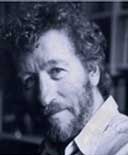My novel on Islam |
One of the books I read as background to my novel was Islam: A Short History, by Karen Armstrong. She writes movingly of how Arabs in the Peninsula longed for a voice-hearing prophet of their own to match the many Jewish prophets, famed for hearing the voice of God over many generations, and the twin voice-hearers of Christianity, Jesus Christ and John the Baptist. The ability to hear voices was much prized in the long period covered by the holy books of the great religions – and long before, going back to the time of Homer.
This led some writers in the 1970s (notably the American psychologist Julian Jaynes and the psychiatrist Thomas Szasz) to speculate that voice-hearing might once have been a very widespread – indeed indispensable – human ability.
Today, it is more usually regarded as a core symptom of schizophrenia. When I look at the Bible, I see many people whose experiences might today have them certified insane. John the Baptist, clad in rags, eating locusts and talking to the moon, resembles the men turned out of the long-stay hospitals in New York and left to wander the streets in the 1990s.
And what of the infant Samuel, called three times in the night by a voice he believed to be that of the prophet Eli, only to find the old man sleeping every time he went to him? Or Abraham, told first to murder, then to spare, his son Isaac?
Of course, the Prophet Mohammed was the most prodigious of all voice-hearers, and as Inayat Bunglawala, of the Muslim Council of Britain, noted yesterday, he has often been accused of being "possessed". Sometimes the words of the Koran do have a slightly ranting rhythm to them – though this may be due to the translation, and Arabic has a different natural intonation from English.
But to me the idea that anyone could have achieved what the Prophet achieved in military and political – let alone religious – terms while suffering from an acute illness of any kind seems completely absurd. I believe that only a healthy and lucid person could have achieved what he did – and I am very happy to make that belief clear.
My book is printed and I wouldn't want to change it because I believe it is fair and tolerant. But I welcome the idea put forward by Ajmal Masroor, an imam and spokesman for the Islamic Society for Britain, in this paper yesterday, that we "should sit down and talk about it" rather than navigate solo with our own cultural compasses.
If Mr Masroor is sincere in his offer, I would be pleased to learn more about Islam. I liked his response that he was more amused than offended, because A Week in December is a satirical novel; he is a man with whom I could do business. I would enter any such dialogue with a degree of humility and plenty of respect for his religion and his scripture; I feel sure he would do likewise.










Post new comment